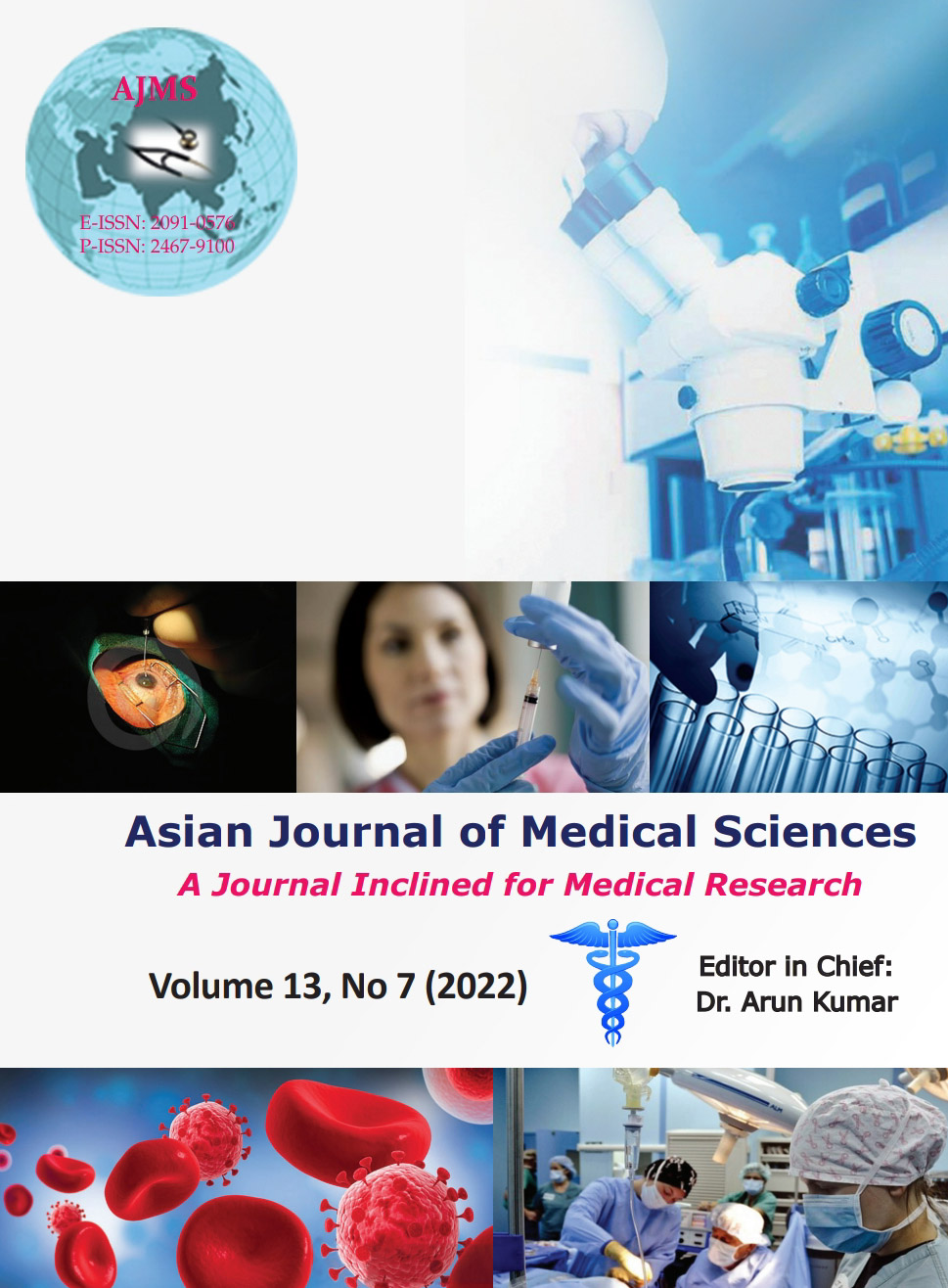The correlation between iodine nutrition and autoimmunity among hyperthyroid goiter patients in tertiary care hospital of Tamil Nadu
Keywords:
Goiter, Iodine-induced hyperthyroidism, Thyroiditis, Thyrotoxicosis , Urinary iodine excretionAbstract
Background: Iodine is a trace element that is essential for the formation of thyroid hormones. It is essential for the human life’s growth and development. The thyroid gland size and functions affected by deficient or excessive intake of iodine. Iodine excess intake was found to associating with iodine-induced hyperthyroidism (IIH) and autoimmune thyroiditis.
Aims and Objectives: The present study was to find the hyperthyroid goiter patient nutritional status by urinary iodine excretion (UIE) measurement and correlate them with thyroid hormone and thyroid autoantibodies.
Materials and Methods: In this study, 100 adult hyperthyroid goiter ssubjects and 100 apparently normal adult subjects were conveniently recruited in this study.Urinary iodine estimation and serum TSH, fT4, fT3, AMA, and ATG were estimated,which were estimated for case and control groups.
Results: The hyperthyroid goiter patient mean UIE concentration was 278.98 μg/L and 68% of excess UIE which was found. There was significant difference in the UIE between the hyperthyroid goiter patient and control (P<0.001). The following types of goiter, based on palpation, were identified among the 100 hyperthyroid patients: Grade I – 4 %, Grade II – 63%, and Grade III – 33%. There were elevated serum AMA levelswith positive correlation of excess iodine for hyperthyroid goiter patient.
Conclusion: In this study, there were excess UIEs among patients; hence, these associated complications, namely, benign goiter (14%), thyroiditis (43%), cancer of thyroid (4%), and thyrotoxicosis (39%) were observed.
Downloads
Downloads
Published
How to Cite
Issue
Section
License
Copyright (c) 2022 Asian Journal of Medical Sciences

This work is licensed under a Creative Commons Attribution-NonCommercial 4.0 International License.
Authors who publish with this journal agree to the following terms:
- The journal holds copyright and publishes the work under a Creative Commons CC-BY-NC license that permits use, distribution and reprduction in any medium, provided the original work is properly cited and is not used for commercial purposes. The journal should be recognised as the original publisher of this work.
- Authors are able to enter into separate, additional contractual arrangements for the non-exclusive distribution of the journal's published version of the work (e.g., post it to an institutional repository or publish it in a book), with an acknowledgement of its initial publication in this journal.
- Authors are permitted and encouraged to post their work online (e.g., in institutional repositories or on their website) prior to and during the submission process, as it can lead to productive exchanges, as well as earlier and greater citation of published work (See The Effect of Open Access).




